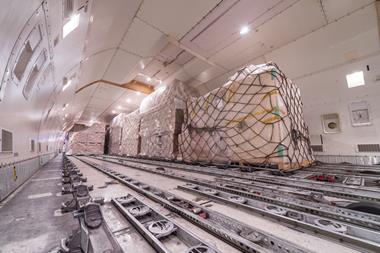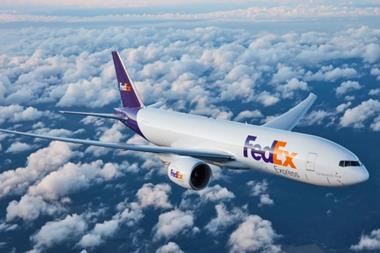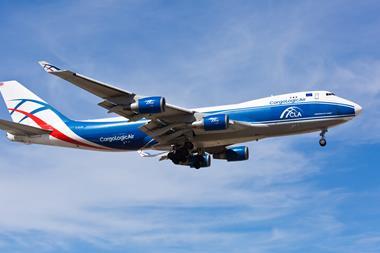Air Partner has expanded its freight team as it looks to build on its income stream.
The UK-based charter broker had revenues of £11.7 million in the financial year ended January 2014, accounting for 5.2 per cent of group turnover, compared with £55.9 million for the private jets division and £148.7 million for commercial jets.
Richard Smith, director of freight and support services at Air Partner, makes the point that revenue size is not always the best measure of performance.
“Some of the other business units have higher revenue because they are chartering large aircraft. But our aim is to grow and develop a freight business to support and contribute to the success we have had in the passenger side.”
In May, Mark Middleton joined as director of business development for freight - Asia Pacific, based in Singapore, and Stuart Smith was appointed business development manager for freight – Middle East, North Africa and CIS, based in Istanbul.
Middleton has 15 years experience working for aircraft operators, and over 15 years working in the air charter broking industry. He has worked on projects all over the world, including in many of the remotest areas of South East Asia and Oceania, and has worked with governments, corporates and private individuals on time critical and project air charters.
Stuart Smith has seven years’ experience in the aviation industry, including five years in the charter broking sector as a cargo director, and two years with Qatar Airways as manager for freighter sales and marketing and regional cargo manager CIS/North Africa.
Said Richard Smith: “The two appointments are senior and very experienced people who have enhanced our knowledge of the freight product in geographies where we haven’t been present in the past.”
The new appointments come some 18 months after Air Partner switched from a geographical management focus to a product-led approach.
Both Middleton and Stuart Smith will look to leverage their contacts in the oil and gas sectors, where Air Partner hopes to expand on its existing freight presence in a market where the group also has a role in the emergency evacuation of workers during civil unrest.
“Our aim is to grow and develop the freight business, to support and contribute to the success we have had in the passenger side.”
The plan for growth comes as military charters - a revenue mainstay for the world’s freighter operators and brokers - are coming to an end.
Observes Richard Smith: “The work around the military operations in Afghanistan and Iraq has obviously been in decline for some time, and that is reshaping the charter business across the products, not just in freight but on the passenger side.
“Everybody is dealing with that change, recognising that life will be very different moving forward and there are some challenges in that, not just for us but for our major competitors as well.”
The division’s customer base is primarily the second tier freight forwarders rather than the global majors who have their own in-house charter capability.
“We act as an off the shelf solution provider for freight forwarders when they are not able to find something through their normal scheduled means, but different industries are handled in different ways.
“For aerospace, we deal with a few more end users, but on the project cargo, oil and gas business, we are supporting the forwarders.
“Part of our role is to say to the second tier: you can compete using our off the shelf services without having to invest in charter teams yourself, and to compete with those major forwarders who have invested in charter specialists.”
Richard Smith adds: “We offer a bespoke solution to an individual problem. The exception to that was the Sochi express for the winter Olympics where we operated regular flights between Frankfurt and Sochi, which was very successful.”
In the “passenger wide-body bellies have stolen freighters’ lunch” debate, Richard Smith sees a glass half full.
“If there is a move towards bellyhold capacity, it can often present an opportunity for charter brokers because there will always be a certain amount of cargo that is outsized and so urgent that people are not able to go with the conventional means.
“A contraction of capacity is something that can present opportunities to provide solutions for shippers and freight forwarders, and that need will continue.”
Air Partner has launched its Time Critical product, primarily an on-board courier service but built on the success of its aerospace and automotive charter business.
“For years we have moved AOG spares, anything from an engine to a small avionics box, for airlines on a very expedited basis.
“What we found was that more and more clients wanted us to broaden that service to outside of the pure aircraft charter, and so we do quite a lot of very urgent movements with on board couriers these days.
“We developed a piece of bespoke software called Red Track, a web-based tracking tool, to allow the client to track their shipment on a very precise timeline.”
And the market perspective: “We have seen a slow and steady improvement but it is not the dramatic return of demand that we have seen after previous recessions and the demand for our product reflects what is going on in the industry.”










